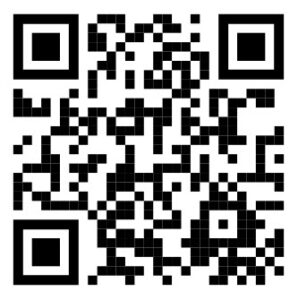| Asia Pacific Journal of Corpus Research Vol. 6, No. 1, pp. 47-53 |
| Abbreviation: APJCR |
| e-ISSN: 2733-8096 |
| Publication date: 31 August 2025 |
| Received: 25 July 2025 / Received in Revised Form: 5 August 2025 / Accepted: 17 August 2025 |
| DOI: https://doi.org/10.22925/apjcr.2025.6.1.47 |
Study on the educational applications of the Corpus of Contemporary American English (COCA) for the 2022 revised English curriculum |
| Taeguk Kim (Inje High School), SOUTH KOREA |
| Copyright 2025 APJCRThis is an open access article distributed under the terms of the Creative Commons Attribution License 4.0, which permits unrestricted, distribution, and reproduction in any medium, provided the original work is properly cited. |
Abstract |
| The purpose of this study is to explore the educational applications of the Corpus of Contemporary American English (COCA) to enhance English communicative competence in alignment with the 2022 revised English curriculum in Korea. This paper analyzes COCA’s primary functions—List, Chart, Word, Collocates, Compare, and KWIC—and proposes pedagogical methods for their use in the classroom. The study reveals three major findings. Firstly, COCA’s extensive, genre-balanced data provides authentic language contexts for learning vocabulary and grammar. Secondly, its analytical tools enable learners to understand lexico-grammatical patterns, collocations, and genre-specific language variations, thereby improving their writing and reading skills. Finally, while COCA is a powerful resource, its limitations include a focus on American English and access restrictions for free users. Web-based corpora like COCA can foster a new paradigm of data-driven, self-directed learning. This approach effectively supports the goals of the 2022 curriculum by equipping learners with practical English skills and critical thinking abilities, making it a valuable supplementary tool for educators. |
Keywords |
| Corpus of Contemporary American English (COCA), 2022 Revised English Curriculum, Data-Driven Learning (DDL), English Education, English Teaching and Learning |
References |
| 교육부. (2022). 영어과 교육과정. 제2022-33호 [별책 14]. Ministry of Education. (2022). National Curriculum of English.
권혁승, 정채관. (2012). 코퍼스 언어학 입문. 서울: 한국문화사. Kwon, H. S., & Jung, C. K. (2012). Corpus Linguistics Introduction. Seoul: Hankook Publishing House. 김태국, 정채관. (2016). 교육적 코퍼스 활용에 관한 학습자의 태도 분석: 고등학생을 중심으로. 중등영어교육, 9(1), 47-80. Kim, T. G., & Jung, C. K. (2016). Korean high school student attitudes toward pedagogic corpus use. Secondary English Education, 9(1), 47-80. 이지연. (2024). 코퍼스를 활용한 영어 쓰기 학습 활동이 예비 영어교사의 영어 쓰기 능력 및 인식에 미치는 영향. 교사교육연구, 63(4), 489-511. Yi, J. Y. (2024). A study of the effects of corpus-based English writing tasks on prospective English teachers’ writing ability and perception. Teacher Education Research, 63(4), 489-511. Karpenko-Seccombe, T. (2020). Academic Writing with Corpora: A Resource Book for Data-Driven Learning. London and New York: Routledge. Ivanova, E. G., Skitina, N. A., Shabanova, V. P., & Poliakova, N. V. (2023). Corpus-based teaching of specific and academic vocabulary for ESL students. Journal of Higher Education Theory and Practice, 23(19), 151-157. |
The Authors |
| Taeguk Kim is a teacher at Inje High School in Incheon. He studies corpus linguistics and research on using corpora for educational purposes. He also focuses on the use of artificial intelligence in English language education. |
The Authors’ Addresses |
| First and Corresponding Author Taeguk Kim Teacher Inje High School 12, Gaetbeol-ro, Yeonsu-gu, Incheon, SOUTH KOREA E-mail: consumption@hanmail.net  |